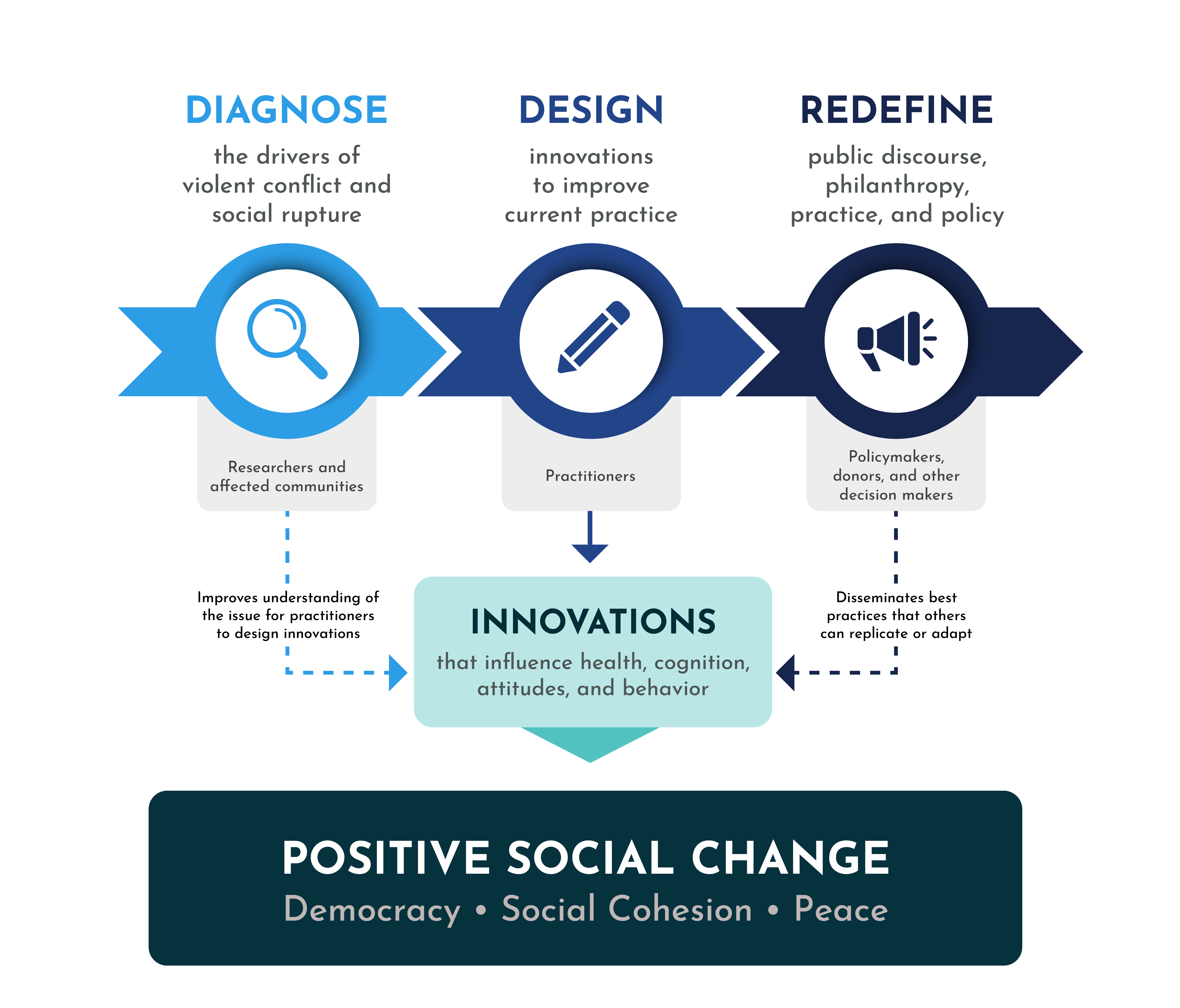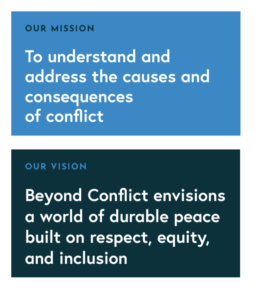Starting in 2001, BC started to integrate research from brain and behavioral science into our Shared Experience Model of conflict resolution and reconciliation. We recognized that previous attempts to understand and address the causes and consequences of conflict did not take into account how the human brain functions as the primary driver of behavior. The paradigms that shaped the work in these fields discounted or ignored how the human brain functions and only offered partial or incorrect explanations and predictions about how and why we act the way we do.
Beyond Conflict combines 30+ years of experience in conflict prevention, resolution, and reconciliation with the latest cognitive and behavioral science. Our team addresses the urgent need to better understand how humans think through the application of first hand experience, rigorous science, and the needs and input of local communities.

We address real-world conflicts by applying our Science and Practice-Informed Design (SPID) process. Our multidisciplinary team of experts applies the scientific method in partnership with practitioners in an iterative, closed-loop process to develop interventions that consider and measure the mechanisms that drive human behavior. Our research focuses on the psychological drivers of conflict and social change, the cognitive foundations and lived experience of identity and belonging, dehumanization and empathy, trauma, and trust.
After generating new evidence-based findings, we design processes to translate these insights into actionable and scalable solutions. We provide practitioners, policymakers, and communities with new tools that work to create measurable impact and reduce conflict.
Case Studies
This method of Science and Practice-Informed Design has been used in Kenya to build resilience in communities being targeted for recruitment by terrorist organizations, such as Al-Shabaab. It has also been tested in Colombia to assist in the reintegration of former rebels into the political community, and has guided early-stage engagement with artists, cultural institutions, and city officials in London, Baltimore and Boston interested in assessing and improving the effect of integration efforts, art exhibits, and structural drivers of racism.
The Field Guide for Barefoot Psychology, that we are now deploying and testing with Syrian refugees in Jordan, uses a Science and Practice-Informed Design approach to help refugees and migrants understand the impact of trauma and forced displacement on the mind and body, and teaches them self-care exercises to boost their resilience and well-being.
The Shared Experience Methodology has been used in several countries to advance dialogue, peace, and reconciliation. In Northern Ireland, Beyond Conflict organized 17 programs that helped leaders to develop the skills needed to develop a political settlement, develop a shared vision for the future, work towards reconciliation, and address the critical issue of demobilization of former combatants.
The Science and Practice-Informed Design process can be applied repeatedly to create systemic transformative brain and behavioral change in a variety of circumstances. This includes better measurement and evaluation of the effect of existing interventions and the creation of entirely new solutions to conflict and its consequences.
